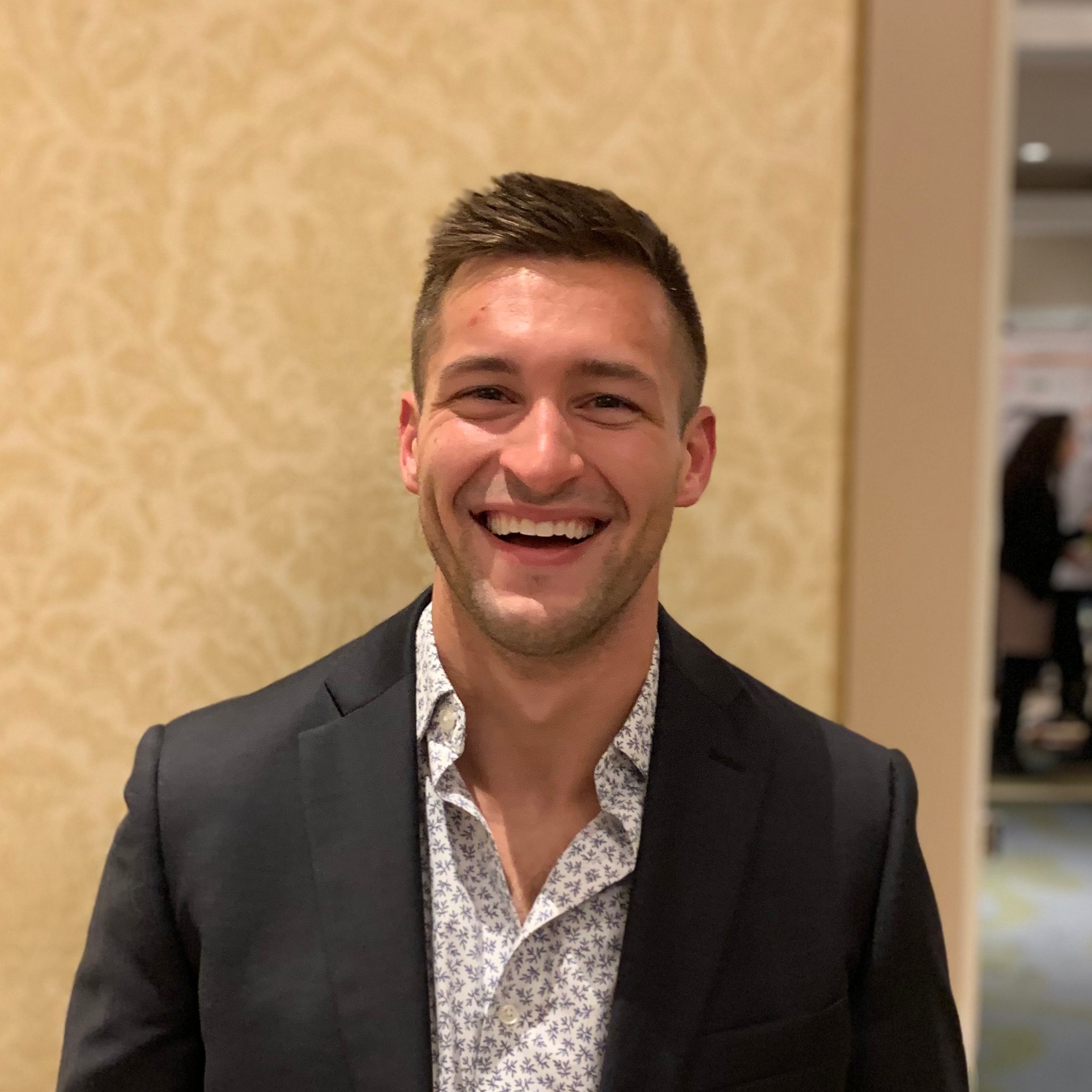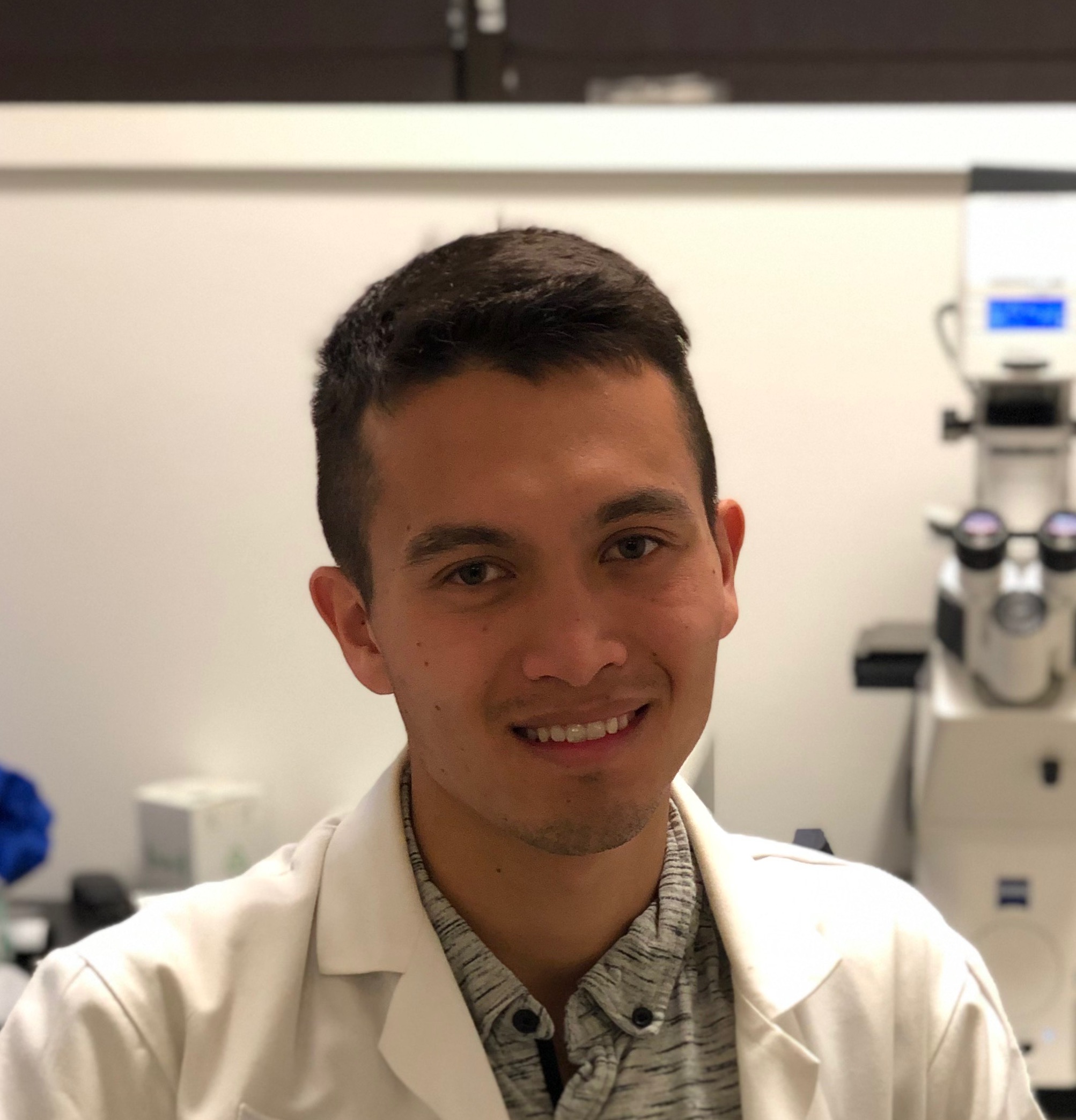GSBS Spring 2020 Travel Winners Announced

The Graduate School of Biomedical Sciences has two winners for this spring’s travel awards. The GSBS travel awards support qualified doctoral and master’s students’ travel to national scientific meetings for the presentation of their research.
 The first award goes to Justin Moroney, a student in the molecular immunology and microbiology discipline of the Integrated Biomedical Sciences Ph.D. program. His mentor is Paolo Casali, M.D. He will be going to the Immunology 2020 Conference in Honolulu, Hawaii from May 8 to May 12. His research focuses on understanding and exploiting the molecular and regulatory underpinnings of human memory B cells to facilitate vaccine development.
The first award goes to Justin Moroney, a student in the molecular immunology and microbiology discipline of the Integrated Biomedical Sciences Ph.D. program. His mentor is Paolo Casali, M.D. He will be going to the Immunology 2020 Conference in Honolulu, Hawaii from May 8 to May 12. His research focuses on understanding and exploiting the molecular and regulatory underpinnings of human memory B cells to facilitate vaccine development.
“Not only is Immunology 2020 a great educational opportunity, but it also provides a great occasion to network and meet other investigators and companies for future collaboration and career advancement,” Moroney said. “The notion of scientific translation has become the cornerstone of my long-term career aspirations. AAI provides the opportunity to engage with members of the scientific community that are dedicated to translating their academic research into real world solutions for patients.”

The second award goes to Ronald Cutler, a student in the biotechnology track of the Master of Science in Cell Systems and Anatomy program. His mentor is Erzsebet Kokovay, Ph.D. He will be going to the Systems Aging- Gordon Research conference in West Dover, Vermont from May 31 to June 5.
Cutler’s research focuses on why the adult neural stem cell pool shrinks during aging, ultimately leading to cognitive decline.
“Adult neural stem cells have the remarkable capacity to produce new neurons and other glial cells post-development,” he explained. “This process, called neurogenesis, is involved in learning, memory, and repair from brain injury.”
He is excited to go to the Systems Aging Conference because he currently works in a lab studying neural stem cell aging and wishes to continue his career in the aging field.
“The Systems Aging Conference will be the first of its kind, bringing together the leaders in the aging field such as David Sinclair, Steve Horvath, and Cynthia Kenyon to discuss systemic approaches and biomarkers in aging research, he said. “As the past decade has seen a rapid advance in developing reproducible biomarkers of aging such as the epigenetic clock or systemic chronic inflammation, this has supercharged longevity research as these measures allow researchers to better quantify aging as well as produce more translatable research as these biomarkers are conserved between lab models and humans.”
Cutler will be presenting the culmination of his master’s thesis work at the conference which asks what the underlying mechanisms are that contribute to the decline of the neural stem cell pool in the subventricular zone during aging.
“I will be presenting data which suggest that the innate immune cells of the brain, microglia, contribute to the observed decline of the stem cell pool through an dysregulated increase in phagocytosis of neural stem cells during aging. This research is an important contribution to not only the field of neural stem cell research but more broadly to aging and stem cell research. This is because research thus far has focused on stem cells themselves and not the interactions between stem cells and the surrounding cell types which make up a stem cell niche.”
